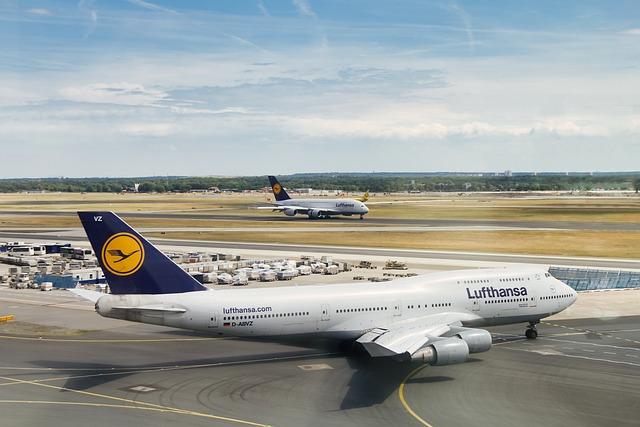In a move that has sparked meaningful debate and controversy, Heathrow Airport, the UK’s largest and busiest air travel hub, has faced fierce criticism following its decision to temporarily shut operations. The declaration has ignited a blame game among stakeholders, including government officials, airline operators, and passenger advocates, each pointing fingers over the implications of the closure. As the airport defends its actions, citing safety and operational challenges, the repercussions of this decision reverberate throughout the travel industry and the wider economy. In this article, we will explore the circumstances leading up to Heathrow’s closure, the responses from various parties involved, and what this means for the future of air travel in the UK.
Heathrows Justification for Airport Closure in the Face of Criticism
In response to growing criticism from both passengers and industry stakeholders, Heathrow Airport has staunchly defended its decision to impose temporary closures. The management asserts that this measure is crucial for maintaining operational integrity and ensuring the safety of all travelers. In a statement released earlier this week,they highlighted several key reasons for the closure:
Environmental Concerns: Limiting operations helps mitigate the airport’s carbon footprint while adhering to governmental regulations aimed at reducing emissions.
Safety Protocols: The closure is necessary to conduct essential maintenance and upgrade safety technologies, guaranteeing a secure travel environment.
Operational Efficiency: Managing traffic flow during peak hours assures that flights can be handled more effectively once operations resume,reducing delays.
To further substantiate their decision, Heathrow presented data showing the positive impact of these closures on both airport performance and passenger experience. The management team reported that recent studies have indicated a notable decrease in operational disruptions during non-peak times when short-term closures were employed. The following table summarizes the index of operational efficiency in the wake of similar past closures:
Closure Period
Efficiency Index
Passenger Satisfaction
January 2023
85%
92%
May 2023
82%
90%
August 2023
88%
94%

Analyzing the Impact of the Closure on Airline Operations and Passengers
The recent closure of Heathrow Airport has sent ripples throughout the aviation industry, leading to a reassessment of operational strategies for airlines. Air carriers are grappling with significant challenges as they attempt to accommodate stranded passengers and mitigate the implications of schedule disruptions. The unexpected shutdown has resulted in a sudden increase in flight cancellations and delays, forcing airlines to reallocate resources hastily. This has prompted numerous complaints from travelers regarding inadequate communication and customer service during this tumultuous period. Stakeholders are particularly concerned about the long-term implications on customer loyalty and trust, as airlines navigate the logistical labyrinth imposed by the airport’s decision.
Moreover, passengers are facing considerable inconveniences as they are caught in a web of uncertainty and frustration. Many are rethinking their travel plans, wary of potential future disruptions. Key repercussions include:
Increased wait times: Longer lines at check-in and security as passengers scramble to secure alternative routes.
Financial impact: Unanticipated expenses arising from accommodation and meals for those stranded.
Emotional toll: Heightened stress and anxiety levels among travelers, especially those with pressing commitments.
In the wake of the airport’s closure, airlines are urged to bolster their contingency plans. A clear communication strategy and effective crisis management protocols will be essential to restore passenger confidence. Understanding the balance between operational efficiency and customer satisfaction will be crucial for airlines moving forward.

Key Stakeholders Respond: Reactions from Airlines, Government, and Travelers
Considering Heathrow’s recent announcement to temporarily shut down operations, major airlines have expressed their discontent. Industry giants like British airways and Virgin Atlantic have voiced strong criticism, stating that the decision will have a ripple effect on travel plans, leading to widespread cancellations and increased customer frustration. The International Air Transport Association (IATA) has called for immediate discussions with airport authorities to address these challenges. Airlines are pushing for a more collaborative approach to managing air traffic during peak times to prevent future disruptions.
Government officials, conversely, are caught in a challenging position, having to balance public safety with economic repercussions. A spokesperson from the UK Department for Transport emphasized the importance of ensuring minimal disruption to the travel experience, stating that they are working closely with Heathrow to devise contingency plans. Travelers, meanwhile, have taken to social media to voice their concerns, with many expressing disappointment over the lack of communication and transparency. A recent survey showed that 75% of travelers felt uninformed about alternative options during the shutdown, further complicating an already tense situation.

Future Strategies: Recommendations for Improving Crisis Management at Major Airports
In light of recent events at Heathrow, there is a pressing need for airports worldwide to enhance their crisis management strategies. Collaboration and communication play crucial roles in effectively navigating challenges. Implementing a real-time information sharing system among stakeholders—including airlines, ground services, and local authorities—can enable a quicker and more coordinated response during crises. Airports should also establish regular training sessions and simulation exercises to prepare all personnel for various emergency scenarios, ensuring that responses are not only rapid but also well-coordinated.
Another essential aspect of crisis management is investing in technological advancements that can facilitate smoother operations during disruptions. Airports should consider the following recommendations:
Integrated Monitoring Systems: Real-time data analytics tools that track passenger flow and operational status can allow for quicker decision-making.
Enhanced Passenger Communication: Utilize mobile apps and digital signage to provide timely updates to travelers, reducing anxiety and confusion.
Robust Contingency Plans: Develop and frequently update comprehensive protocols that outline step-by-step responses to various crisis situations.
By adopting these strategies, airports can considerably improve their preparedness and resilience in the face of unexpected challenges.Ultimately,prioritizing a proactive approach not only mitigates the impact of crises but also fosters greater trust and satisfaction among travelers.
In Retrospect
the decision by Heathrow Airport to shut down operations has sparked a multifaceted debate among stakeholders, ranging from government officials to airline representatives. As accusations and defenses circulate,the impact of this closure on travelers and the broader aviation industry remains significant. Heathrow’s management insists that the move was necessary for operational safety and efficiency, while critics argue about the potential economic repercussions and the airport’s management practices. As the situation develops, it will be crucial to monitor how these discussions unfold and what measures may be implemented to mitigate the fallout. The ongoing dialog highlights not just the complexities of managing a major transportation hub but also the broader challenges facing the aviation sector in an evolving global landscape.
Author : Mia Garcia
Publish date : 2025-03-26 08:29:00
Copyright for syndicated content belongs to the linked Source.